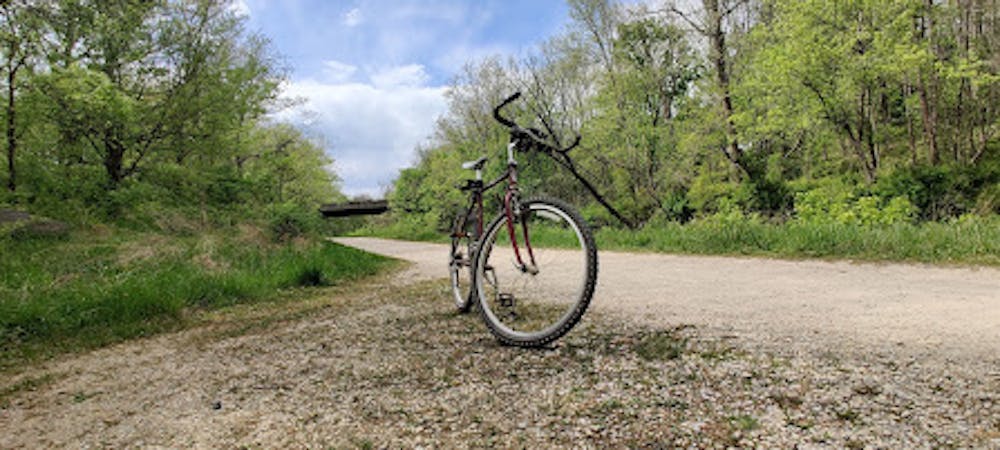
The century ride. 100 miles, straight. It’s a milestone that many cyclists hit at one point in their lifetime. However, as an amateur cyclist only two years into the sport, I never thought I would hit the milestone so soon.
Like most people during the start of the pandemic, I suddenly found myself with a surplus of time on my hands. I was in my senior year of high school, so school was winding down to a close and my schedule was much freer. Lacking classes and unable to hang out with my friends, I was running out of things to do.
Bored out of my mind, I craved an activity that would allow me to not only stay active but also experience something new. I looked for inspiration from my friends.
Some of my friends went on hikes, but I was hesitant to join group activities that increased the risk of transmission. Some spent hours doing digital art, but I felt that was too sedentary. And then, some of my friends took up cycling. I decided to go with that idea.
My first bike rides were on a Walmart-brand mountain bike. Suffice it to say, these rides were rough. There were many things that instantly wore me down.
The first and probably most noticeable symptom of biking is the soreness. For many cyclists, especially new ones, the soreness can be almost unbearable, making basic tasks like walking and sitting a pain. My first few rides left me practically incapacitated for days after.
The next major thing that wore me down is what cyclists call “the bonk.” Bonking happens when your body runs out of energy, which often occurs when the cyclist doesn’t have enough food during the ride. Cyclists who face this issue either need to stop and consume entire meals or cycle to their destination at a snail's pace.
Personally, my experiences with bonking resulted in the latter, and I would end up taking frequent breaks and even consider harassing my parents to pick me up. Luckily, I always made it back home, but it would be much later than I had initially planned.
The last major struggle I came across with cycling was a lack of motivation to continue. I have come to realize that, at the end of the day, cycling is a mental resilience test more than anything else.
Biking can sometimes feel endless when all you can see is the endless road ahead of you or an unvarying landscape of vegetation, called the “green tunnel.” That feeling of endlessness can be exacerbated by other factors too, like muscle pain and lack of energy.
But these downsides were things that I had gradually gotten used to. I no longer felt as sore; my muscles hardened with use over time. I learned to bring snacks and take breaks at restaurants to avoid bonking. Diminishing motivation, however, is a factor I have yet to overcome, and it still affects my rides to this day.
The joys of cycling make the hardships worth it. As a Maryland resident, cycling around Washington D.C. has revealed to me many interesting sides of the nation's capital, such as its natural beauty.
I frequent Rock Creek Park, a quiet forested area with rivers and wildlife, and I often cycle along the National Mall to the botanical gardens near Capitol Hill, full of some of the most exquisite, beautiful vegetation I have ever seen. To explore our nation’s history, some mornings I cycle to Arlington National Cemetery to visit the sacred grounds, a humbling experience that reminds me of the cost of our freedom.
One of my favorite routes is the Chesapeake and Ohio Canal, where I can experience the journey that early Americans faced when transporting goods from Ohio to Washington D.C. These experiences were an eye-opener; our nation’s capital is a rich ground of history, commerce and nature: a stark contrast from the other industrialized cities in the U.S.
Cycling has taught me other things, too. As I become more experienced, I continue to grow in commitment to and determination in my school work. Cycling requires a strong mental focus to push someone to arrive at a certain destination and come back home as well.
Something I am often reminded of is that, for every mile I bike away from home, I also need to bike a mile back home. Moreover, the only person who can get you back home is yourself. You won’t always have your parents there to pick you up when you’re stranded or a friend with you to help you. This was a hard lesson for me to learn when I went on my century ride last summer.
Despite being an amateur rider, I decided I wanted to try biking 100 miles straight.
The first 4.5 hours went by like a blur. At that point, I was accustomed to 50-mile bike rides, so I didn’t feel as much fatigue. However, after the halfway mark, the rest of the ride, which took an excruciating 6.5 hours, was much more physically and mentally demanding. I found myself taking longer, more frequent breaks as I struggled to maintain the motivation to continue riding.
I truly understood how important it is that I feel a sense of responsibility for myself when I’m cycling. There was no one else on this bike and no one else riding with me — I was the only one who could get myself to my destination and back. This sobering thought propelled me forward to finish up the last legs of my ride and return safely home.
To this day, I’m still enamored by the sport of cycling. I’ve been able to experience new environments, explore the different communities that I call home and visit locations that I never thought I would encounter. It has heightened my mental fortitude, and, most importantly, it has taught me self-sufficiency, self-care in the face of physical challenges and self-awareness of what I can handle. These skills have shaped me into the person I am today.
Jonathan Young is a junior from Potomac, Md. studying Computer Engineering. His column is about the non-traditional activities or events that have shaped him into the person he is today.





